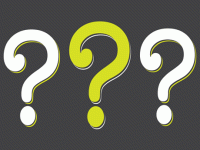A World of Project Ideas (You Can Steal)
One of the advantages of project-based learning is the flexibility. PBL is an effective instructional strategy within individual content areas as well as across disciplines. It's engaging for young learners and teens alike. Good projects can be short term and tightly focused, or expansive enough to require months of inquiry. The sky's the limit -- which can be a challenge for teachers designing their first projects.
Fortunately, you don't have to start from scratch. By borrowing good project ideas from other teachers, and adapting them to fit your context, you can get off to a faster start.
Draft on These Ideas
Some 600 educators spent the past week thinking hard about project design during the PBL World conference in Napa, Calif., sponsored by Buck Institute for Education. Getting peer feedback early is a key strategy for good project design. That meant conference participants were sharing their project ideas and driving questions at the formative stage, then revising them in response to feedback (just as students improve their work during PBL).
Here's a sampling of driving questions at the rough draft stage, along with suggestions about PBL planning to fire up your thinking:
Who were the most influential leaders of the Civil Rights Movement in terms of impact upon today's society?
Notice the phrase, "most influential." This embeds critical thinking into the project because it prompts students to develop criteria and then make a defensible argument for why they selected a particular leader. Imagine the wide range of products students might produce to tell the story of a particular leader. That's a good sign that students will have voice and choice in the project, deepening their engagement.
How can we use our knowledge of math to convince our families, our school, and our community to go solar?
This question sets up a real-world application of math and science. Imagine where this might lead: mathematical models of future cost savings; comparisons of prices for different solar materials; analysis of weather patterns and predictions during different seasons. Students might want to consult with solar experts to get feedback on their proposals. There's an authentic audience, too (families, school, community), and the need for students to make convincing arguments, pitches, or campaigns to "sell" their solar plans.
How can we make life sweeter in our community?
This one's deliberately provocative, causing students to ponder what "sweeter" means. The idea is to have students read about both fictional candy makers (i.e., Willy Wonka) and real-life philanthropists who have made their money producing sweets (i.e., Milton Hershey). Then, they'll research and recommend opportunities for community involvement in their own hometown. Imagine the reading and writing opportunities embedded in this project idea, along with the real-world connections to ensure relevance. Sweet, indeed!
How can we design a watercraft that maximizes both load capacity and speed?
Here's a good example of a design challenge, with authentic constraints built into the driving question. Good opportunities to engage with experts in engineering and water sports. Plus, imagine the fun learning ahead during the prototype and test phase.
How can freshmen be heroic for others?
Here's an idea to kick off the new school year. Imagine having ninth-graders learn about the hero's journey through literature and then document their own feats of heroism as they embark on high school. There's an empathy-building piece to this question, too ("heroic for others"), embedding social and emotional learning into an academically rich project.
Want even more PBL ideas to play with? How would you modify these to engage your students, address your content, and ensure meaningful, memorable learning?
- Are robots friends or foes?
- How do stories from the past define who we are today?
- What new monument or museum should be built in our city to enhance the lives of our citizens and visitors?
- How can we create a more sustainable and efficient modern ecosystem?
- How can we manage scarcity?
- How can we create "farm to table" at our school during the winter months?
- How can we build community through art?
- How can we make getting around in the winter more safe and convenient?
- How can we prevent E. coli from entering our swimming areas?
- I what ways can I change the injustices I witness?
- What's the fastest and cheapest way for me to get to school on time?
Resources Galore
More great resources from PBL World are available in a Google+ community. Join the PBL World community to watch inspiring keynotes and download resources to help you with your own PBL Journey.
Which project ideas are you thinking about borrowing? Share your thoughts and ask for feedback in the comments section below.
